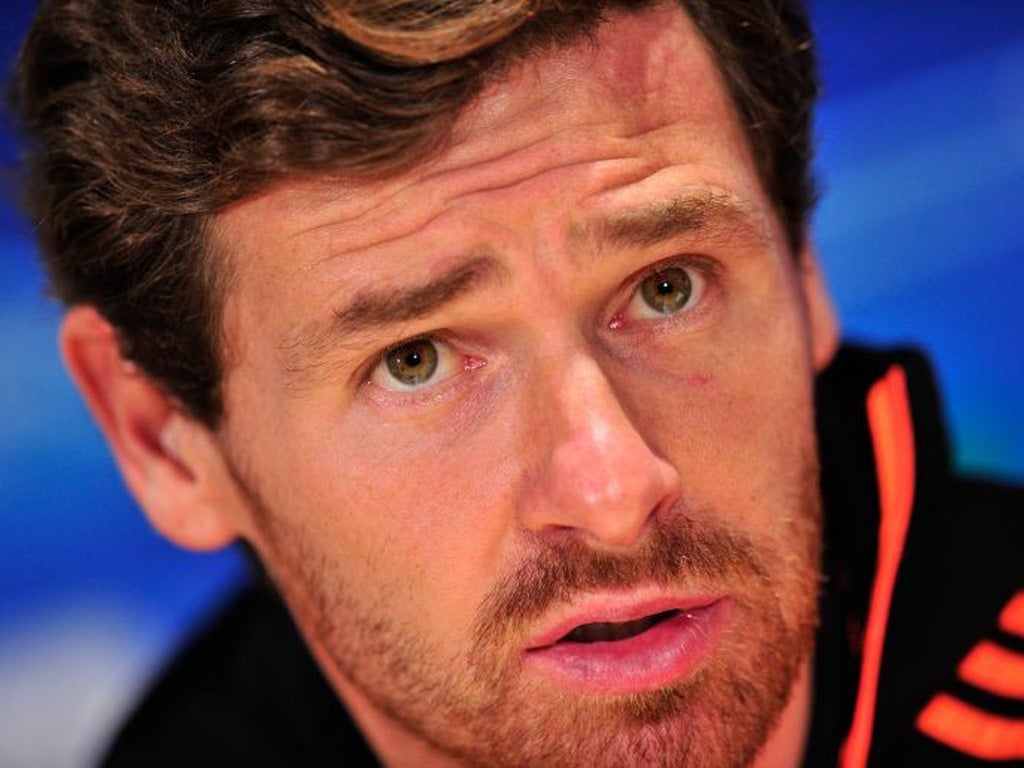The Last Word: Spurs take a radical path as London clubs hit crossroads
Villas-Boas has won more silverware than Redknapp in his entire career

At least the duopoly in La Liga has a logical foundation, culturally and geographically, in the Castilian and Catalan seats of power. Here, in contrast, the capital city gazes in increasing derangement across the chasm that suddenly divides Manchester from the rest of the nation.
One way or another, London's football slums must be demolished – together with their parochial, gangland mentality. For Arsenal or Spurs to measure their problems or progress against each other, rather than Manchester, is akin to rescuing a garden gnome when your house is on fire. And if Spurs fans are tempted to relish a new bitterness, in their neighbours' perennial polemic of faith and despair, then they should recognise that their own uncertainties, this time round, are instead conditional on Chelsea.
Forget that Wembley humiliation (though do not forget the limits it reiterated in Harry Redknapp, invisible as they always seem to his pals in the media). The real grievance was still to come, when Bayern Munich contrived not to score with 42 out of 43 shots, and Chelsea gleefully pulled the Champions League carpet from under Tottenham's feet.
Barely a dozen weeks previously, of course, Chelsea had seemed doomed to elimination by Napoli. There is the decided air of a calculated stunt, then, to Daniel Levy's appointment of Andre Villas-Boas as Redknapp's replacement.
It has a palpable edge of danger. Many sanctimonious bystanders will be demanding a new humility of the Portuguese prodigy. They feel that Villas-Boas uses press conferences merely to show off. And there are plenty of Chelsea players, and fans, who evidently suspect that is all he was ever doing, in his tactics and selection.
Villas-Boas is everything Redknapp is not. He exudes vanity, both intellectual and physical. He has a meticulous approach to football. He compensates for his youth with a self-conscious gravitas, and duly betrays a want of subtlety or confidence in his use of personal authority.
In the end, however, it was precisely as Redknapp's antithesis that he most appealed to Levy. It is curious how soon Harry has become Falstaff. Having fancied himself poised for some great patriotic adventure, Redknapp has been banished even from his own, familiar estates. The myth has soon been debunked. Martin Jol, after all, had come within a lasagne of the Champions League. Against other rivals in the top four, Harry's men seldom manifested self-belief commensurate with their new status. And he remained doltishly welded to 4-4-2.
At 34, Villas-Boas has won more silverware than Redknapp in his entire career. Spurs, moreover, already offer younger, quicker legs than the brooding, bovine elite at Chelsea who snorted and stamped when he intruded on their grazing. There are few untouchables at White Hart Lane. Gareth Bale looks a bespoke fit for various slots in his 4-3-3, and there is sufficient pace at the back to sustain that notoriously high defensive line.
If Luka Modric insists on leaving, so be it. For all his quality, he has rarely imposed his personality on the Spurs midfield. And Joao Moutinho, far from being a step backwards, would actually represent a significant statement.
For it should be remembered that Villas-Boas – for all the mutiny at Chelsea, and the derision prompted by their transformation – retains genuine clout in the Iberian crucible of the modern game. And a man who could bring Juan Mata to London, and may yet bring Moutinho, offers something far beyond Redknapp's ken.
Much is made of Redknapp's bond with his players. But how, pray, might he have handled Roman Pavlyuchenko more obtusely? Yes, there was a conspicuous bloom in certain players when Villas-Boas left Chelsea – inviting some fairly scandalous inferences about their professionalism. If anything, however, Villas-Boas lacked the arrogance perceived by his critics. His system and his captain were incompatible, but he did not have the nerve to choose between them – and so, naïvely, made the situation worse. He must have known John Terry could not work a high line. Terry certainly did. Something had to give.
Chelsea very nearly won the Champions League under Avram Grant. Guus Hiddink was another whose tenure did not menace the power structure. But did Roberto Di Matteo owe that bewildering success in Munich to some sustainable vision? Did his honeymoon, comprising five wins in 11 league matches, lay genuine foundations for a title challenge next season?
The answer was transparent in the bleak smile of his employer, as Di Matteo reached the rostrum. Perhaps Roman Abramovich was wondering how something he had craved so long could, in its consummation, prompt something so close to embarrassment. For not even he will be satisfied to win at all costs. The money, clearly, is irrelevant – but Abramovich may feel that adventure and flair should be less dispensable.
Poor Arsène Wenger, of course, continues to strive for all that, but without the dough. Spurs themselves might never have been able to hire Villas-Boas, but for a damaged-goods discount. But now they have got themselves a manager unlikely to treat fourth as an ample ambition; and the first, lest we forget, to discover a chink in City's armour last season.
Each of the great London clubs has reached some kind of crossroads. But only one has decided on a radical change of direction.
Subscribe to Independent Premium to bookmark this article
Want to bookmark your favourite articles and stories to read or reference later? Start your Independent Premium subscription today.

Join our commenting forum
Join thought-provoking conversations, follow other Independent readers and see their replies